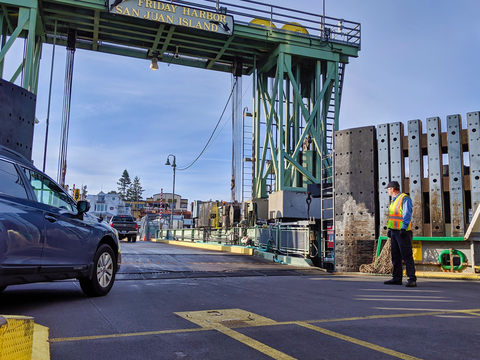The serene waters surrounding Vashon Island belie its residents’ turbulent challenges due to the faltering ferry service. Over the past two decades, lawmakers’ lack of foresight and investment in Olympia has allowed the island’s vital marine highways to fall into disrepair. The consequences of this neglect are stark: a feeble fleet of vessels struggling to maintain schedules and a workforce grappling with the effects of mass retirements.
Governor Jay Inslee and state lawmakers have recently acknowledged the urgent need for investments to rebuild and restaff the ferry system. However, as Inslee admitted, these efforts have come far too late. The state’s failure to address the $270 million backlog in deferred maintenance and the antiquation of the ferry fleet has led to a series of breakdowns and disruptions, impacting not only Vashon Island but also ferry-dependent communities across Washington.
The scale of the crisis is evident in the dwindling ferry services to Vashon, West Seattle, Southworth, Bremerton, and the Whidbey route. With over 3,500 canceled sailings and on-time performance plummeting to 84%, the repercussions extend far beyond individual communities. The economic vitality of the entire state is at stake.

While leaders in San Juan County advocate for a thorough examination of the ferries’ economic impact, lawmakers still lack awareness about the system’s significance. The economic repercussions of unreliable ferry service are profound, with declining hotel bookings, dwindling tourism revenues, and businesses suffering due to disruptions.
The economic importance of the ferry system extends beyond the immediate impact on local economies. From Bainbridge Island’s 35-minute lifeline to Seattle and the businesses relying on tourist traffic, the ferries are integral to Washington’s economic ecosystem. Yet, amidst competing demands within the Washington State Department of Transportation, the ferry system has been overlooked.
A comprehensive economic impact study is needed to quantify the ferries’ significance and garner support for much-needed investments. As Washington prepares to host the World Cup in 2026, the condition of its ferry system will be under global scrutiny. Will visitors be greeted by a reliable transportation network or discouraged by a system in disrepair?
Washington must not allow its iconic ferry system to become an afterthought in its transportation budget. These routes serve as vital marine highways, transporting people and goods while symbolizing the state’s identity. When the ferries falter, so does the entire community. It’s time for lawmakers to prioritize restoring and revitalizing Washington’s ferry system before it’s too late.






